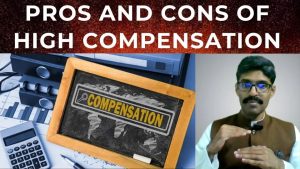The Insider Guide to Careers
Insider information, secrets and tips about getting hired and building careers. For employees and job candidates.
I recently read the book Animal Farm by George Orwell. This is the sixth time I have read this book, and I very much recommend this book to anyone. It is a short read of about 80 pages, and you can finish the entire book in one reading. George Orwell intended this book to be a satirical take on Communist and Stalinist Russia. Interestingly, even in the 21st century, the lessons are still valid. A note that my analysis may have some spoilers ahead.
The book revolves around the antics of a group of pigs led by their leader Napolean, who browbeats all competition and imposes his will on the entire troop of animals inside a farm. The story’s beginning unfolds like a true revolution, a fight against human oppressors and a struggle to improve the lives of the farm animals. Over time, through a series of tragedies and farces, the leaders begin to ruthlessly exploit the farm animals way more than the original human oppressors ever did. Near the end of the story, the neighbor of the farm remarks that “animals on Animal Farm did more work and received less food than any animals in the country.” Let us look at some of the familiar tropes employed in industry and how that fares in the Animal Farm story.
Pre-takeover of Animal Farm:
Most companies begin with a utopian vision of improving the world. For example, the famous Apple Super Bowl ad in 1983 for the Macintosh featured an individual’s rebellion against the monolithic IBM of the day, the colossus seeking global domination. However, it is a different question today as to why the Apple ecosystem is a walled garden. Why are the hardware, software, and services in a controlled environment with limited access to third parties? Just like how Napolean morphed into the human overlords in Animal Farm, Apple is now the IBM of today. But, the companies were never imposed on anyone; they emerged as a culmination of people’s choices. Just like how the animals chose Napolean, consumers chose the big tech companies. The IBMs and Apples did not emerge out of a vacuum.
In the story, Snowball and Old Major were the original leaders of the revolution. They genuinely wanted to serve the animals. Unfortunately, one of them died, and Napolean quickly deposed the other. In the early days of Apple, Steve Jobs was the founder and leader who was overthrown in a disgraceful coup by John Sculley and the board. It was a different story that John Sculley had to exit after a poor performance, and Steve Jobs had to return.
The crow Moses told the animals stories about the Sugarcandy mountain, where “it was Sunday seven days a week, clover was in season all the year around, and lump sugar and linseed cake grew on the hedges.” This realm is no different from the dream of retirement and the annual Christmas holiday offered to employees, the only time when all problems would end and all the time reserved for traveling, having fun, and making merry. Without the distant and supposedly achievable goal, no employee would sacrifice their entire youth and prime working life for the sake of something as abstract as a company.
The takeover of Animal Farm:
The two horses, Boxer and Clover, embody the employees who work in a company. They always believed in the Seven Commandments adopted by Animal Farm and were ready to give up their lives to see the Animal Farm idea succeed. Likewise, a company’s Vision, mission, and HR policy are akin to the Seven Commandments. The HR staff is typically like the character Squealer, who spreads company propaganda to the employees. HR is usually the enforcement wing of the top management. Of course, some companies give complete freedom and independence to HR to run their own ship. While these cases are uncommon, these enlightened companies ultimately end up in the best places to work rankings.
As Yuval Harari talks about in his book, “Sapiens: A Brief History of Humankind,” a company is a product of human imagination and collective human hallucination. No other animal can ever form a company, especially in vast numbers, to accomplish complex tasks. A company doesn’t exist in reality and survives only as a legal entity. We have our own perceptions of a company – that it is our family, a tribe, and so on. None of it is true. A company is an arrangement where a bunch of total strangers can come together and accomplish a task with mutual benefits.
Once employees fail to add value, companies have no place for such employees. Like Boxer in the story (who is dispatched to the butchers in old age), non-performing employees are also immediately laid off. It is immaterial if the employee has done remarkable work in the past; only the most recent work matters. Corporate careers are always about the present. One must keep running faster and faster to be in the same place.
Many companies consider hard work an important component of employee evaluation rather than smart work. Therefore, there is little incentive to be efficient in your work as that involves being given more and more work. Work in companies that don’t treat you like the character Boxer and instead decentralize work, allowing you to experiment and learn from your mistakes. Blind loyalty to Napolean or your company management (without considering the impact on your career) is the path toward career suicide. HR folks always tell employees – “When it comes careers, it is not management, not the company, and not even your family who owns it. You own your career.”
Post-takeover of Animal Farm:
The leaders of Animal Farm kept maligning and slandering other farms nearby because they did not want the animals to seek fortunes elsewhere. Likewise, company leaders often slam and demean other companies because they do not wish good talent to leave their company. Individual employees must be wary of company tropes and make their own judgments of the situation. Companies always care about the collective’s survival and rarely bother about any individual. The other lesson is that irrespective of how incredible an individual employee is, everyone from top to bottom is replaceable. The show will always go on.
CEO and top management compensation indicate how much management benefits at employees’ expense. In some enlightened companies, CEO compensation and median compensation rise together. But unfortunately, in most companies, CEO and top management compensation increase even when many employees are laid off and the average employee receives no hike. These are early warnings of a culture that resembles Animal Farm.
There is a surreal scene in the book where all dissenters to Napoleon are identified as traitors and put to death so that Napolean can do whatever he wants, as per his whims and fancies. This note reminded me of the burning platform memo of Nokia CEO Stephen Elop, rephrased below:
“There is a pertinent story about a man who was working on an oil platform in the North Sea. He woke up one night from a loud explosion, which suddenly set his entire oil platform on fire. In mere moments, he was surrounded by flames. Through the smoke and heat, he barely made his way out of the chaos to the platform’s edge. When he looked down over the edge, all he could see were the dark, cold, foreboding Atlantic waters.
As the fire approached him, the man had mere seconds to react. He could stand on the platform and inevitably be consumed by the burning flames. Or, he could plunge 30 meters into the freezing waters. The man was standing upon a “burning platform,” and he needed to make a choice.
He decided to jump. It was unexpected. In ordinary circumstances, the man would never consider plunging into icy waters. But these were not ordinary times – his platform was on fire. The man survived the fall and the waters. After he was rescued, he noted that a “burning platform” caused a radical change in his behavior.
We too, are standing on a “burning platform,” and we must decide how we are going to change our behavior…”
It goes on and on, read it yourself here.
It turned out that this note was one of the most bizarre exhortations of all time. Stephen Elop, an executive at Microsoft, joined Nokia (a big competitor) as the CEO. What he did was the stuff of Microsoft’s dream about dismantling competition. Stephen Elop sent this memo, fired employees, allegedly dismantled Nokia piece by piece, and sold the company to Microsoft. Stephen Elop made 18.8 million dollars as part of the sale. He justified the number saying that he had to give half of it to his wife as he was getting divorced at the same time that Nokia was being acquired. The payout was so outrageous that the Finnish finance minister commented that the payoff “may be a threat to social harmony.”
After Microsoft acquired the company, Stephen Elop joined back Microsoft as an executive VP, collected his exit payout, and retired after a couple of years, having run Nokia to the ground (as per critics).
To close, the lessons of the book “Animal Farm” and modern corporate are the same:
For more, follow also my Substack and Careerbolt channels.



